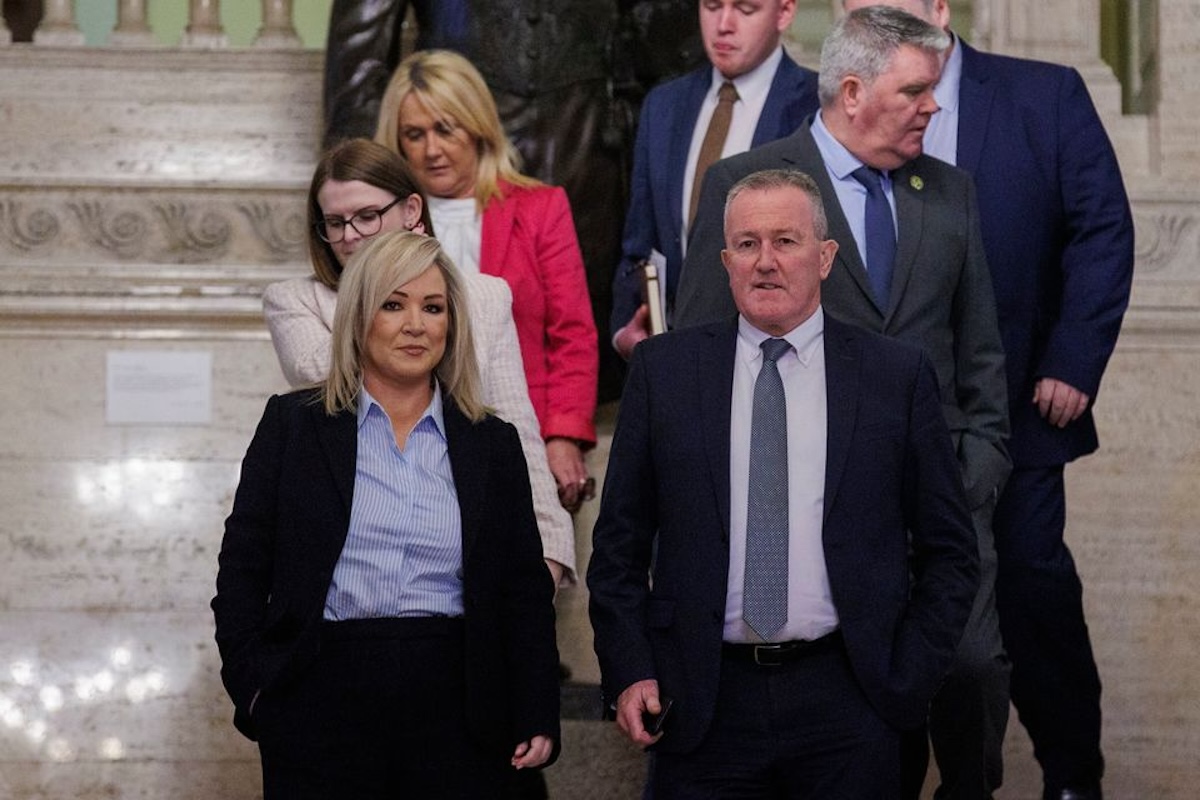
Ahead of a huge one-day general strike over the failure to deliver backdated pay increases and funding for services, the North’s first minister designate, Sinn Féin’s Michelle O’Neill, has told the Stormont Assembly she fears the democratic institutions of the Good Friday Agreement are in “free fall”.
The Assembly was recalled on Wednesday in a last-ditch bid to end the DUP boycott which has paralysed decision-making in the North. For the seventh time in two years, the DUP refused to allow the election of a Speaker, ensuring the political institutions remain mothballed.
Ms O’Neill has now backed calls for the Dublin and London governments to work together on ‘Plan B’ - a joint alternative to power-sharing in the North - if the DUP does not end its boycott.
She said: “if it is the case that the DUP will not respect the outcome of the election and restore democracy, then there is an obligation on both the British and Irish governments to look at Plan B.
“There must be a British-Irish partnership that provides joint stewardship and an intensified role for the Irish Government in the affairs of this state.”
Widespread public sector strikes are due to take place on Thursday. There have been warnings of serious disruption due to services such as road gritting being withdrawn. Schools will be closed and hospitals operating reduced services. There are expected to be picket lines, parades and rallies across the Six Counties, including at Belfast City Hall, the Guildhall Square in Derry, Omagh court house and Enniskillen town hall.
Meanwhile, hopes among those who still support the Stormont Assembly that it can be revived are starting to fade, and interest in potential alternatives is growing.
Warning that this could be the final sitting of the body, Ms O’Neill said that “if the DUP position of obstruction remains unchanged, then it is imperative that a change of direction within the constitutional framework of the Good Friday Agreement is now advanced”.
Speaking during the debate on Wednesday, the Sinn Féin vice president said there was “no clear explanation for stalling formation of an executive” and “the argument that this continues to relate to the (Brexit) Windsor Framework has lost all credibility”.
“The only remaining explanation for the DUP boycott is the refusal to accept a nationalist first minister.
“There is a dangerous attempt under way to disregard the democratic outcome of the Assembly election, and this threatens our democratic governance, public administration, reconciliation and the very fabric of this society,” she said.
“If Jeffrey Donaldson does not change his approach, then this sitting may well be the final one of this assembly. The public looking on here today are not seeing the change they voted for.”
During the debate, the Alliance Party, Ulster Unionists and the SDLP all called on the DUP to drop their boycott and return to Stormont, and appealed to the British government to unilaterally deliver a £3.3 billion package which was the subject of negotiations before Christmas.
The DUP again dismissed the Assembly recall, the fifth since it was elected in May 2022, as “stunt” which had been “cynically orchestrated”, while British Direct Ruler Chris Heaton-Harris has insisted that public sector pay is in the control of the North’s politicians.
The deadline for the restoration of the political institutions runs out later today, and Heaton-Harris is under a legal obligation to call a fresh Assembly election, to be held within 12 weeks.
He is expected to once again scrap the requirement after he told the House of Commons on Wednesday he intends to “bring legislation on these matters next week”.
![[Irish Republican News]](https://republican-news.org/graphics/title_gifs/rn.gif)
![[Irish Republican News]](https://republican-news.org/graphics/title_gifs/harp.gif)

